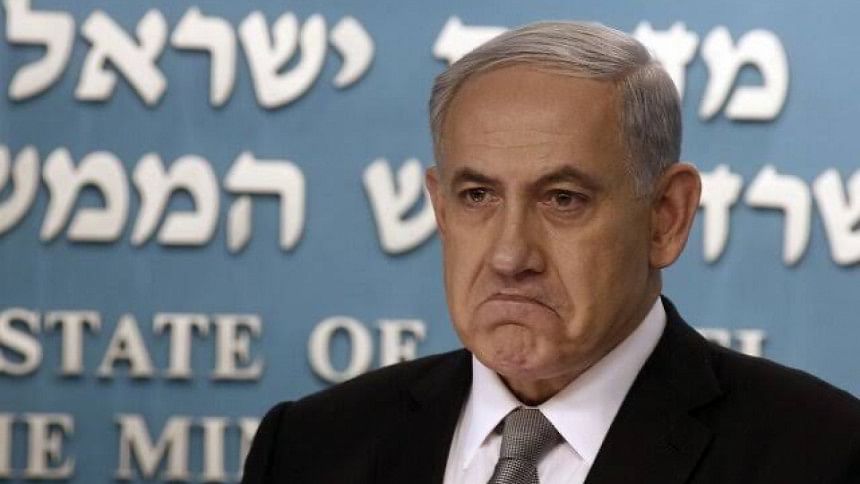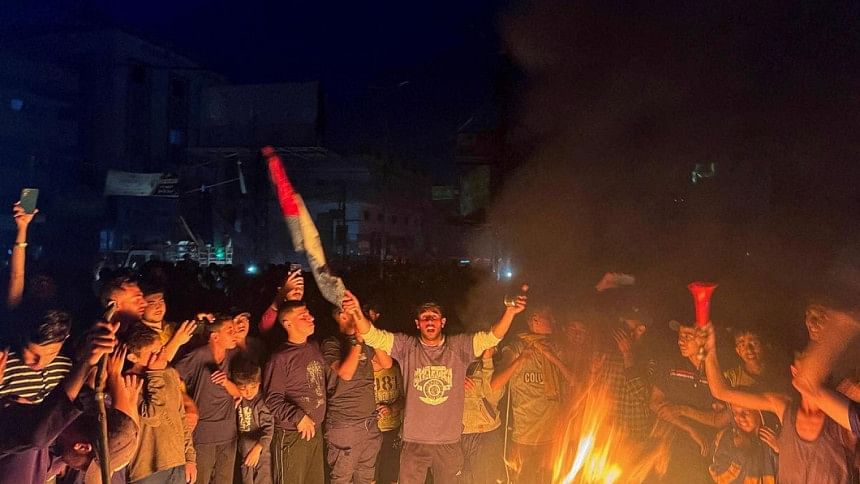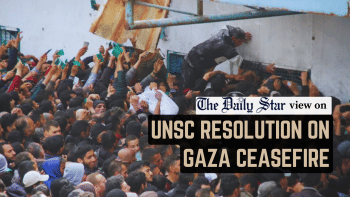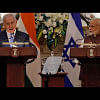Israel's Rafah invasion, rejection of the Hamas ceasefire deal, and US role

On Monday, Israel dropped leaflets ordering 250,000 civilians to evacuate Rafah, and moved tanks in the area that is a vital entry point for aid in the Gaza Strip. The reasoning for the Rafah invasion, given by Israel's Defence Minister Yoav Gallant, was that there was no alternative as Hamas had rejected every proposal for a temporary ceasefire and release of hostages. But by the evening, Hamas accepted a ceasefire deal mediated by Egypt and Qatar, which presented a sliver of hope for peace to Gazans who have been experiencing bombing, displacement and starvation for the past seven months.
The glimmer of hope diminished shortly as the Israeli invasion of Rafah continued on. On Tuesday, a video circulating on social media by Palestinian journalists showed Israeli tanks ramming into the Palestinian side of the Rafah border. Palestinian journalists also reported that all aid deliveries had been stopped as no one in Gaza is able to travel any more.

The US has been quiet so far about the deal that Hamas has accepted, while White House has stated they oppose the Rafah invasion. On the other hand, Belgian Prime Minister Alexander De Croo is currently attempting to impose economic sanctions on Israel in a "joint effort with several other European countries" if Israel advances its military operation in Rafah.
In the aftermath of Hamas's announcement of the ceasefire deal, 1,000 Israeli protesters gathered near the defence headquarters in Tel Aviv, and 100 protesters marched towards Prime Minister Benjamin Netanyahu's residence with banners reading, "The blood is in your hands." According to Haaretz, Einav Zangauker, whose son is being held captive in Gaza, protested outside the home of a close Netanyahu ally, Aryeh Deri, stating, "If my son Matan pays for the Rafah adventure with his life, Matan's blood will be on your hands." Israeli opposition leader Yair Lapid told The Times of Israel on Tuesday, "The Israeli government abandoned the hostages and must do everything to bring the hostages home."
Against mounting international and domestic pressure, Israel has rejected the ceasefire deal as "far from meeting Israel's basic requirements," and said that Hamas has added further conditions to portray the Israelis as the naysayers. A blame game appears to be playing out between the Israeli government and Hamas; the Israeli foreign minister said that Israel had agreed to "significant concessions" which Hamas refused.
A copy of the text of the ceasefire proposal approved by Hmas, obtained by Al Jazeera, shows that the agreement is written in three phases. The first stage, to be conducted in 42 days, entails that Hamas will release all Israeli hostages, including civilian women and children, and in return Israel will release at least 30 children and women. Throughout the first phase, an agreed-upon number (not fewer than 50) of Hamas's "wounded military personnel'' will be allowed to travel through the Rafah crossing to receive medical treatment. Accepting this specific term, for Netanyahu, would mean that he has not achieved his proclaimed aims of "eliminating Hamas."
The second stage involves a permanent cessation of Israeli military operations prior to the release of all remaining living Israeli men, both civilians and soldiers, who have been held captive, in exchange for an "agreed upon" number of prisoners and detainees in Israeli prisons. The third stage includes a reconstruction plan for the Gaza Strip, over a period of three to five years, and a complete end to its siege.
In short, Hamas wants a permanent ceasefire, while Israel wants a temporary truce to bring back the hostages and continue to destroy Hamas in its military campaign in Gaza, which has largely and disproportionately killed civilians.
Though Israel has not yet elaborated on which terms were not agreed upon to underline their reasoning of rejecting the deal, Netanyahu faces political pressure from within his coalition from hardliners who demand that he follow through with the planned Rafah invasion. The foundation of the ceasefire deal, which requires an end to not only Israel's current military operations in Gaza, but also lays out a plan to end Israel's blockade, is not in Netanyahu's domestic political interest to retain power with his current coalition. Israel has consistently asserted that it would not accept a ceasefire deal that provides for a permanent ceasefire to achieve its goal of "total victory" by destroying Hamas's military and governance capabilities.
Earlier on Sunday, in a video message, the Israeli prime minister said he would not accept a ceasefire deal that demands an end to the war. "Hamas remains entrenched in its extreme positions, first among them the demand to remove all our forces from the Gaza Strip, end the war, and leave Hamas in power. Israel cannot accept that," he said in the video message on X.
There has been increasing tensions within the Israeli government to advance on Rafah. Israel's National Security Minister Itamar Ben-Gvir continues to insist that Netanyahu goes into Rafah with full force. On Sunday, according to The Times of Israel, Israeli Finance Minister Bezalel Smotrich called for an immediate military incursion into Rafah, declaring that he would not allow Netanyahu and his fellow cabinet members to "extinguish the spirit of heroism." Accepting the ceasefire deal would effectively explode the unity in Netanyahu's far-right coalition.
Israel has sent a delegation to Egypt to further negotiate the terms, but the chances of Netanyahu accepting the deal are slim—unless the US exerts significant pressure, which would require a complete reversal in its approach and support for Israel. To stop Israel and push it to agree on a permanent ceasefire would require the US to also view a permanent ceasefire, rather than a temporary truce, to be the solution to the current humanitarian crisis in Gaza.
The US has voiced concerns regarding Israel's military operations, but US backing for Netanyahu's government has not been shaken—especially with the military aid of $14 billion, which was passed with bipartisan support last month. There has been increasing domestic pressure on the Biden administration as historic Pro-Palestine students' protests is sweeping across the US. They have been met with nationwide arrests of more than 2,000 people and militarisation of college campuses. Though the White House National Security Spokesperson John Kirby told reporters on Monday that "nothing changed" in the US stance towards an Israeli assault on Rafah, he reiterated that US support for Israel's security remains "ironclad," while also stating that the US does not support the International Criminal Court's (ICC) judicial investigation into probable war crimes committed by Israeli officials and military.
Last week, prior to Hamas' announcement of the ceasefire deal, Prime Minister Netanyahu pushed back against talks of arrest warrants by the ICC, as it conducts its probe in the genocide case brought on by South Africa. The US has also participated in threatening and intimidating the ICC. In a letter signed by Republican senators, obtained by Zeteo, threats were given to ICC Chief Prosecutor Karim Khan to not issue arrest warrants against Netanyahu and other officials. Signed by 12 GOP senators, the letter intimidated sanctions against Khan and his family, and ICC employees and associates, stating, "Target Israel, and we will target you."
Ramisa Rob is in-charge of Geopolitical Insights at The Daily Star.
We welcome your contributions and analysis of global events, and responses to our articles. To submit articles to Geopolitical Insights, please send an email to [email protected]
Follow The Daily Star Opinion on Facebook for the latest opinions, commentaries and analyses by experts and professionals. To contribute your article or letter to The Daily Star Opinion, see our guidelines for submission.

 For all latest news, follow The Daily Star's Google News channel.
For all latest news, follow The Daily Star's Google News channel. 










Comments